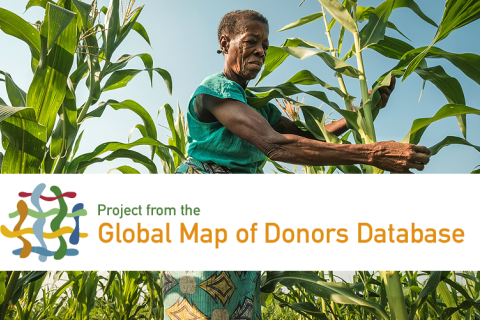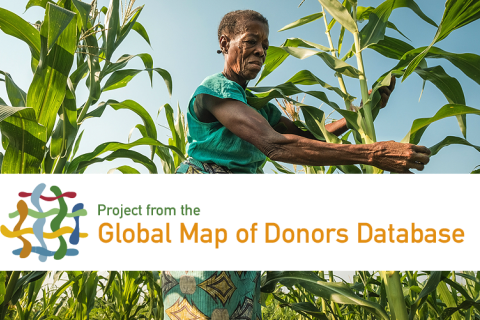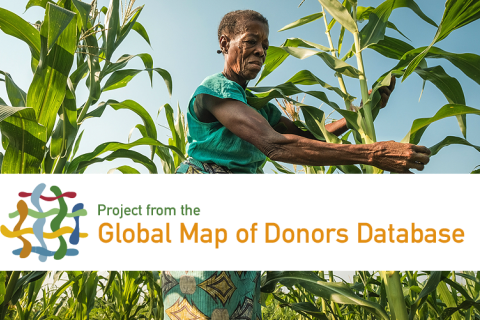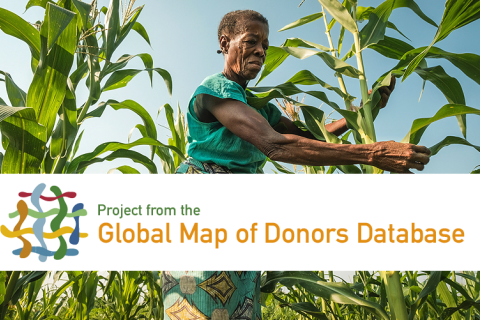The Global Donor Platform for Rural Development is a network of 38 bilateral and multilateral donors, international financing institutions, intergovernmental organisations and development agencies.
Members share a common vision that agriculture and rural development is central to poverty reduction, and a conviction that sustainable and efficient development requires a coordinated global approach.
Following years of relative decline in public investment in the sector, the Platform was created in 2003 to increase and improve the quality of development assistance in agriculture, rural development and food security.
// Agriculture is the key to poverty reduction
Agriculture, rural development, and food security provide the best opportunity for donors and partner country governments to leverage their efforts in the fight against poverty.
However, the potential of agriculture, rural development and food security to reduce poverty is poorly understood and underestimated.
Cutting-edge knowledge of these issues is often scattered among organisations, leading to competition, duplication of efforts, and delays in the uptake of best practices.
// Addressing aid effectiveness
Therefore the Platform promotes the principles of the Paris Declaration on Aid Effectiveness, the Accra Agenda for Action for sustainable outcomes on the ground, and the Busan Global Partnership for Effective Development Cooperation.
Increasing aid to agriculture and rural development is not enough. Donors must work together to maximise development impact.
// Adding value
The Platform adds value to its members’ efforts by facilitating the exchange of their development know-how, which consolidates into a robust knowledge base for joint advocacy work.
Working with the Platform, members are searching for new ways to improve the impact of aid in agriculture and rural development.
- An increased share of official development assistance going towards rural development
- Measurable progress in the implementation of aid effectiveness principles
- Greater use of programme-based and sector-wide approaches
- More sustainable support to ARD by member agencies
// Vision
The Platform endorses and works towards the common objectives of its member institutions to support the reduction of poverty in developing countries and enhance sustainable economic growth in rural areas.
Its vision is to be a collective, recognised and influential voice, adding value to and reinforcing the goals of aid effectiveness in the agricultural and rural development strategies and actions of member organisations in support of partner countries.
// Evaluation
Between August and October 2014, the Global Donor Platform for Rural Development underwent an Evaluation. The evaluators interviewed across board focal points (FPs) of member organisations, partner institutions, staff of the secretariat and key agricultural and rural development experts from different organisations involved in the Platform initiatives. KIT reviewed Platform documentation of the past 10 years, online resources and services to complete the assessment.
According to the report, the change in overall global development objectives of the Post-2015 agenda and its sustainable development goals (SDG) will only reiterate the relevance of the Platform’s work in coordinating donor activities. Agriculture and rural development are incorporated in many of the SDGs. The targeted development of appropriate policies and innovative strategies will depend on increased, cross-sectoral cooperation which the Platform stands for. The achievement of the Platform’s objectives of advocacy, knowledge sharing and network facilitation functions remains to be a crucial contribution to agriculture and rural development.
Members:
Resources
Displaying 11 - 15 of 808Creditos Orbe Loan Guarantee Facility
General
A special purpose vehicle that will provide a direct and effective way to significantly lower interest rates and monthly payments for property formalization services offered in Colombia.
Cities Alliance
General
Omidyar Network is supporting Cities Alliance to encourage innovation in the promotion of tenure security and property rights in Africa’s informal urban settlements. Micro Funds for Community Innovation will address the nexus between the issue of property rights, Africa’s growing young population, and its capacity to innovate and deploy modern technologies. The innovation fund will be run through a micro-grant facility targeting tech-savvy entrepreneurs, micro enterprises, innovators, community-based organizations and local NGOs, and stimulate the use of simple, affordable, accessible innovations to secure property rights.
ODI - Property Rights Index
General
Overseas Development Institute (ODI) is an independent think tank focused on international development and humanitarian issues. ODI has partnered with Land Alliance to scale up PRIndex, the first global index that measures perceptions of property rights among communities. The aim of this index is to provide a global and national-level baseline of perceptions of property rights, that is comparable, cost-effective, and widely accessible. This baseline will provide the grounding for a global conversation and movement around securing the property rights of an estimated 2 billion people who currently lack them. Omidyar Network is funding ODI to scale PRIndex to reach an initial tranche of 35 countries, with aspirations to reach 140 countries in the years to come.
Land Portal Foundation Core Operating Support
General
Core operating support that will enable Land Portal to build: (1) a highly useable spatial data platform that showcases targeted, well-organized, and easy-to-find spatial datasets; (2) an improved level of access to data and information related to the SDG land indicators on the ‘Land & SDGs’ platform; and (3) core operational support.
The Asia Foundation
General
Follow-on support to continue to build on the existing work of promoting the use of technology, such as drones and mobile applications, to improve the cost and efficiency of applying and processing land titles in Philippines. Goals include: (1) Incorporate mobile application into national Land Administration and Management System (LAMS) and support the government in smooth integration of the app for improved efficiency in the pre-titling process; (2) Promote drone-assisted surveys for titling through developing training modules and scaling the use of drones through pilots covering 1500 titles in both urban and rural areas; and (3) Conduct background research on key tenure related challenges in the Philippines, with particular reference to agriculture and forest tenure.






